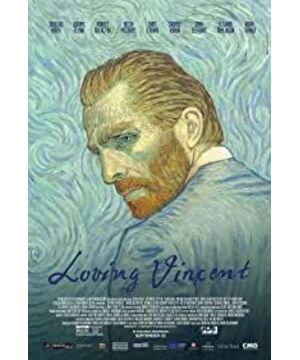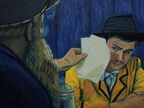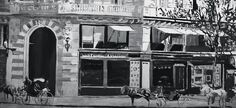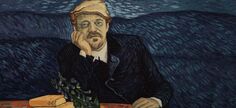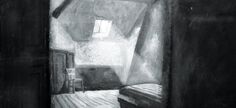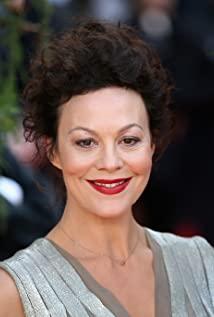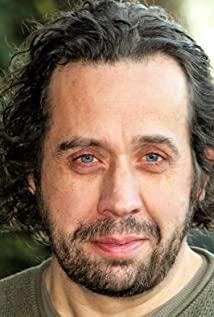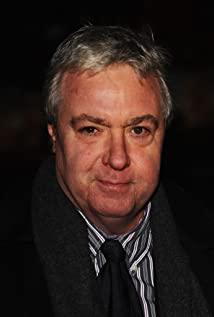If you don’t look at Impressionism, you don’t know the ultimate in Western painting; if you look at Impressionism, don’t look at Van Gogh, you don’t know the ultimate in Impressionism.
The disadvantage of Impressionism is that it has eyes and no brains. Monet and Signac, the second and third sons, are eager to ask for nothing but shape, light, color, re-enactment of the moment, game brush and ink, beauty is beautiful, and it always feels a little less soul. .
If you ask one more question, who are the Impressionists who have eyes and brains?
The answer is simple: Van Gogh.
Van Gogh's brushes did not reproduce nature, but his ardent spiritual world: loneliness, anger, distress, joy, sorrow, compassion...
At the end of the nineteenth century, the call for "the omnipotence of science" spread throughout the West, and painters were among them. Heart, also become calm, swipe and write, little passion. Vincent van Gogh was born in this world and had his paintings.
In my opinion, Van Gogh is more than a great master of Impressionism. In the country of windmills, a scholar with a three-footed life, aloof and arrogant, not in the same way as the common people, with a pen of a child, fighting against the void, is truly the Don Quixote in the palace of art.
Van Gogh's "high", what more than that?
The great master of Impressionism, Quixote, the hall of art, is the name of Long Live.
In 1987, "Sunflowers" sold for $39.5 million.
In 1990, "Portrait of Doctor Gachet" sold for $82.5 million.
In 1998, "Self-Portrait" sold for $71.5 million.
In 2004, "The Boy with a Pipe" sold for $104.16 million at auction.
In 2014, "Daisies and Poppies" was sold for 377 million yuan, and the buyer was Wang Zhongjun, chairman of Huayi Brothers.
In contrast to this, is his "loneliness before his death":
Van Gogh was impoverished all his life, relying on his father and younger brother to help, and only sold the oil painting "Red Vineyard" before his death.
Van Gogh's life was up and down, and the only thing that didn't change was his hard bones.
He only has a favorable impression of laborers, and he disdains to paint all the upper-class figures. Those poor, tired, and sad people never leave his mind for a moment. Russell said that an unstoppable sympathy for human suffering dominated his life. So did Van Gogh.
Van Gogh had a good friend named Gauguin, whom Van Gogh cited as a fellow. But the two are so different.
Gauguin's character, see "The Moon and Sixpence". For Gauguin, everything in the world, everything in the universe, can be used as a stepping stone for him to realize himself and climb the "higher" peak.
In contrast, Van Gogh went to the bottom, sympathized with the bottom, helped the bottom, and was more like a saint.
Van Gogh's "high" comes from his "van".
Van Gogh had the idea of being born as a teenager, and the youth was even more indulged in theology, claiming to have seen Christ and felt miracles. At that time, Dickens's novels were popular, and they mostly wrote about the suffering of the poor. After reading it, Van Gogh went to Belgium without thinking about eating and drinking, and made a volunteer to spread the gospel for the poor.
Borinage, a mining area in southern Belgium. This place is extremely dangerous. There are often gas explosions and frequent fires. The miners are precarious and live in dire straits.
Over the years, hundreds of miners have died in explosions, fires, landslides and plagues.
Van Gogh was not afraid of this, and preached to the miners every day. He visits families with macules and injuries and helps with chores. When a mining accident occurred, he rushed to the scene as soon as possible to rescue the miners who were burned from head to toe.
Medical supplies were in short supply, so Van Gogh bought paraffin and olive oil at his own expense to make linen bandages. He worked non-stop, sat in front of the hospital bed, prayed day and night, and when the patient got better, he got down on his knees and crossed his hands.
While helping the miners, Van Gogh was frugal, like an ascetic. He was disheveled, sloppy inside, and in the cold winter of the twelfth lunar month, he didn't wear a coat, and only ate gruel, sugar water, and bread without butter. He refused to be comfortable, and only lived in thatched huts, sleeping on hard bunk beds, taking care of the wounded during the day, and writing and drawing at night.
On April 17, 1879, a huge fire broke out in the mine. Inside the mine, methane leaked, blue sparks flickered, and a cyclone picked up coal dust, which happened to be ignited by flames. The entire mine has become a hell of flames. The fire engulfed the tunnel at a speed of thousands of miles per hour, and as the furnace exploded, all living things - including men, children, and horses, were instantly scorched.
The wellhead kept exploding, hundreds of tons of coal and rocks were thrown into the air, and huge pillars of fire shot up into the sky, visible from miles away.
Hours later, people rushed to the scene of the fire, swearing in anger and whimpering in grief. Stretchers came in and out, from hospitals or churches, and in no time, the charred bodies piled up into hills.
A total of 121 miners were killed in the fire. The next day, the police cordoned off the site and closed the mining area to prevent excesses.
Van Gogh's father, when he learned of this, was uneasy. He knew his son so well that, in a letter to Theo (Van Gogh's younger brother), he wrote: "He (Van Gogh) was eccentric, compassionate, and had no resistance to suffering. , hope God bless him.
Knowing son Moruo father.
After the fire, it was devastated, and this situation made Van Gogh unable to restrain his emotions. He scattered his property, took off the silver watch on his wrist and gave it away, and ripped off his clothes to make bandages. He was dressed in burlap and walked barefoot in the snow like a medieval saint. Most of the time, he stayed with the miners, warming them with the light of his firefly.
Van Gogh's crazy "Sunnah" angered the Evangelical Society. In July of that year, the local Evangelical Society issued an "official statement": terminating Van Gogh's pastoral qualifications. And found an "unnecessary" reason: Van Gogh's speech ability was too poor to perform his missionary duties.
In this regard, Van Gogh knew very well that the real reason for his expulsion was that he was a maverick, did not compromise with the Evangelism Society, and overdid the good things.
The Gospel Society banned Van Gogh from preaching and gave him three months to find another place. Van Gogh was unmoved and continued to go his own way. At this moment, the entire church regards Van Gogh as an enemy, and mobilizes all local strata to boycott Van Gogh together.
At meetings, people humiliated him and laughed at his eccentric behavior. In Van Gogh's favorite catechism class, children were instigated to abuse his parents and call him "madman".
Beleaguered on all sides, Van Gogh fell into ecstasy and despair. He wrote to his brother Theo:
I am not iron, nor heartless, like all, I need friendly relations, intimate company, without these, I am A body...
In the letter, he referred to Theo as his "reason to live". Only their brotherhood could comfort Van Gogh and make him feel that there was a little bit of beauty in his life.
In the months that followed, all the churches refused to hire Van Gogh, and his "bad reputation" has been with him since the fire. When his father sent him money and goods, he either distributed it to the poor or sent it back to his father.
By the end, even the miners began to humiliate Van Gogh because of his eccentric behavior.
The lonely Van Gogh had to choose to avoid the crazy crowd.
In "Song Book", there is a story of "Crazy Spring".
Once upon a time, there was a country with a water in the country, called the Crazy Spring. The people of the country were all crazy when they drank this water. Only the monarch went through a well and drank it, and he was safe. , jointly administering the lord of the state, treating his madness, fire and acupuncture, all of them are fully equipped, the lord of the state does not allow his suffering, so he goes to the spring to drink water, and after drinking it, he is mad. Rejoice.
Van Gogh is like this king, people see him as a madman, but they don't know that the real madness is himself.
Surrounded by walls, and with no wild springs to drink, the lonely Van Gogh was finally sent to a mental hospital.
Van Gogh, as far as the smallest is concerned, is the great master of Impressionism and Don Quixote in the palace of art, and as far as the great is concerned, he is a living saint.
Such a great master, such a saint, and Shi Shi Shi, are nothing but "low-end people" who can't pay the rent and are expelled by the world.
Liang Ren Gong said that in the affairs of the world, there is no such thing as success and failure.
The starry night is vast, what can I say!
View more about Loving Vincent reviews


